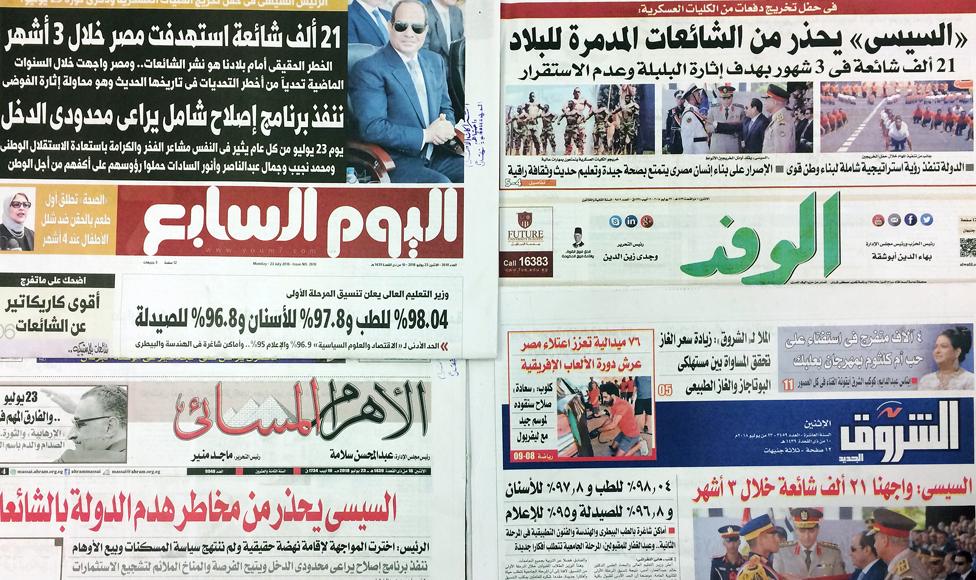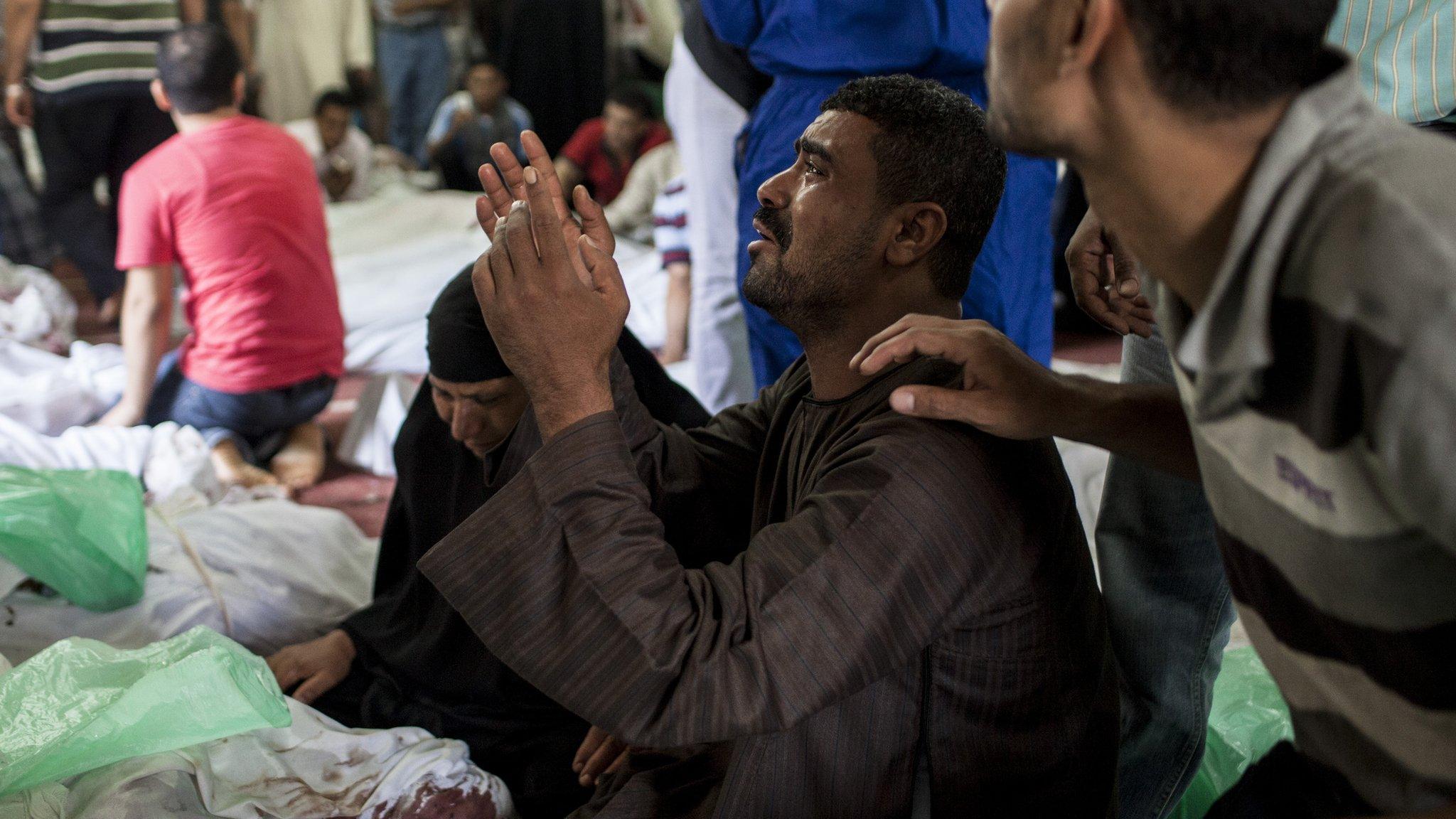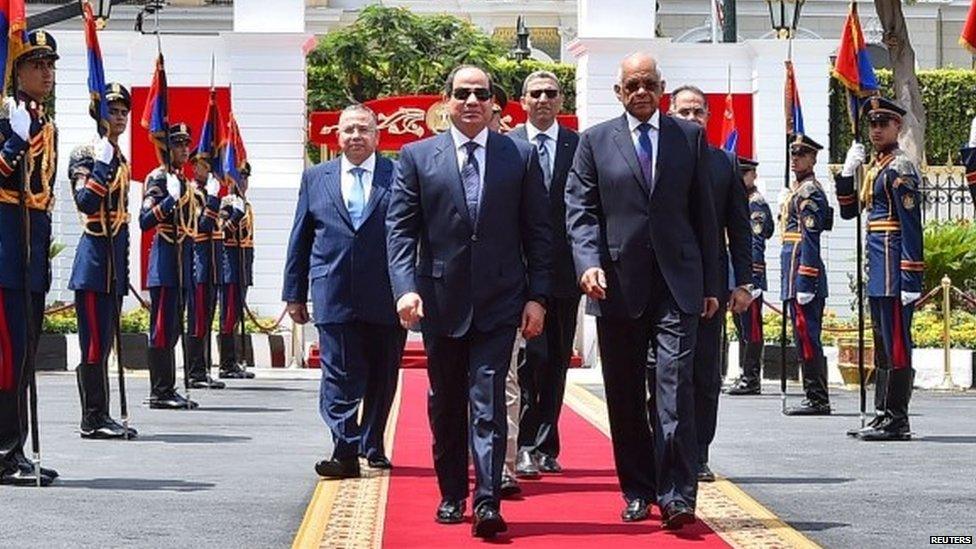Egypt TV ads warn against 'rumours' on social media
- Published

Egyptian President al-Sisi has warned that the country could be destroyed by rumours
Adverts have appeared on Egyptian TV warning about "rumours" circulated on social media.
It comes days after President Abdul Fattah al-Sisi warned in a public speech against the spread of rumours on social media, saying that more than 21,000 rumours had circulated over the past three months.
One advert, broadcast on the privately-owned Extra News TV, tackles a widely circulated rumour that three children had been found dead in Cairo as a result of an organ trafficking crime. But the advert refutes the claim, quoting official security sources.
"Don't believe everything you see on social media," the advert says. "Check news before you share it. Get news from a well-trusted source."

Don't believe everything you see on social media, cautions an advert on Extra News TV
Another advert, broadcast on state-run Nile News TV, reviews eight false rumours "spotted in 10 days".
"Social media are platforms of lies," the advert said.
One of the rumours highlighted claimed that an Egyptian sovereign fund sold state-owned assets and property without control. But the advert denies the claim, quoting the Ministry of Planning as saying that the fund aimed to preserve the state's assets and make use of them.
Another rumour was that six ships collided in the Suez Canal. The advert refutes this, saying that traffic on the canal was flowing normally.

Nile News TV claims to have spotted eight false rumours on various social media platforms in the space of 10 days
Rumours 'could destroy the country'
The local press has been running a similar campaign, with many newspapers highlighting President's Sisi remark that rumours "could destroy the country".
"Sisi warns against destructive rumours," read the headline of the privately-owned Al-Wafd daily on 23 July.
Likewise, state-run Al-Ahram al-Masai carried a headline reading: "Sisi warns against the risk of destroying the country with rumours."
"Sisi: We faced 21,000 rumours within three months," read the headline of the privately-owned Al-Shorouk.

Egyptian newspapers have highlighted President Sisi's warnings about the dangers of spreading rumours via social media
News websites also joined the campaign, interviewing officials and commentators who warned against rumours.
"Disseminating rumours in this period aims to spread depression, especially among the youth," Youm7, external website quoted Prime Minister Mostafa Madbouly as saying.
The director of the government's Media and Rumour Monitoring unit, Naaym Saad, said her team was keen to spot rumours and deal with them once they emerge.
"We have to respond to those rumours in order to prevent confusion among the citizens," she told Masrawy, external website on 23 June.
BBC Monitoring, external reports and analyses news from TV, radio, web and print media around the world. You can follow BBC Monitoring on Twitter, external and Facebook, external.
- Published16 July 2018

- Published2 June 2018
